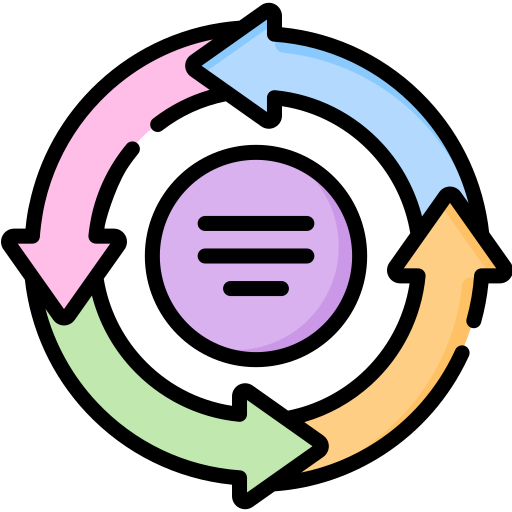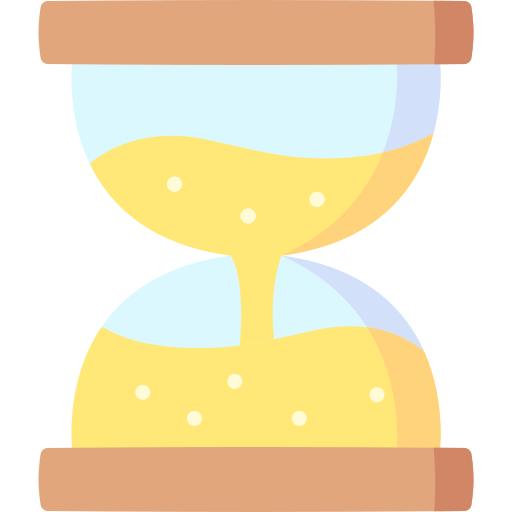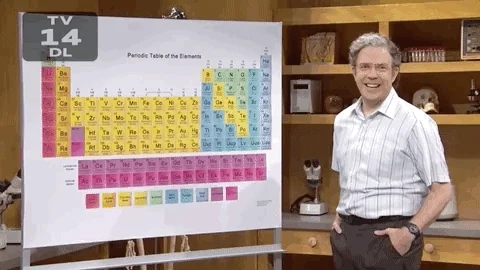Looking for ways to help you study smarter for your high school chemistry class?
 Chemistry might not be the easiest subject to learn, but you don't need to spend endless hours buried in your books.
Chemistry might not be the easiest subject to learn, but you don't need to spend endless hours buried in your books.
These 3 powerful study techniques will help you understand and remember chemistry topics better.
1. The Feynman Technique
What if teaching complex chemistry concepts is the best way to learn them yourself?
Richard Feynman is a Nobel Prize-winning American physicist at Princeton University. His study technique involves a 4-step process to learn about any topic, focusing on understanding over memorization.
This study technique can help you identify what you already know and what you still need to know.
Try breaking down complex chemistry concepts and explaining them in simple terms as you teach someone else. It must be simple and concise so that even a child could understand it.

Key steps:

1. Choose a concept to study.
Identify the specific topic you need to learn about and start reading on it.
Sample topic: Law of Conservation of Mass
Read your textbook, study from your notes, and look at video tutorials to build a strong foundation of understanding on the topic.

2. Explain it to someone unfamiliar with the topic.
Look for a friend, maybe someone taking a different class, and teach the topic. Use your own words to explain. Try using simple analogies and examples.
Sample explanation:
We can understand the law of conservation of mass when we think about what happens when you make a cheese sandwich. When you make a cheese sandwich, you don’t magically lose bread or cheese. Everything you start with is still there, just in a different form.
Before: 2 slices of bread, 1 slice of cheese
After: 2 slices of bread, 1 slice of cheese
Nothing is created, and nothing disappears. The total mass stays the same — it just gets rearranged.

3. Assess and improve your understanding.
Reflect on the parts you had a hard time explaining. What are the chemistry terms and ideas that you need to focus on? Which lecture notes do you need to read further?
Sample reflection:
I can better explain why the ingredient (atom) needs to be equal on both sides.
I can come up with more examples of the law.

4. Review, refine, and repeat.
Solidify your knowledge and try to teach the topic again, improving on your previous explanation.
Sample refinement:
Offer 2-3 examples of the law.
Summarize the law: "That's the law of conservation of mass — nothing is created nor destroyed in a chemical reaction. Matter is only transformed or rearranged."
2. The Pomodoro Technique
What if you could get more done while working less?
Study in focused 25-minute intervals ("Pomodoros") with 5-minute breaks. This can help you concentrate while avoiding burnout.
You can use this method by breaking down tasks and spending a Pomodoro for each task.

For example, let's say you have to revise balancing equations for an upcoming test. Instead of jumping in with no plan, you decide to use four 25-minute study intervals (or Pomodoros):
Pomodoro 1: Read about the law of conservation of mass, and understand how it relates to balancing equations.
Pomodoro 2: Study the steps on how to balance chemical equations, looking at examples from class.
Pomodoro 3: Dive into practice problems, inspecting the different parts of a chemical equation closely, and learning through trial and error.
Pomodoro 4: Do a mock test, balancing 10 chemical equations without referring to supportive material. End by assessing how you did.
 Watch this video to know why Pomodoro technique works:
Watch this video to know why Pomodoro technique works:
3. Spaced Repetition and Active Recall
Think you've learned that topic? Great. But can you still remember it next week?
Spaced repetition is a study technique that involves reviewing information at increasing intervals over time. Active recall means pulling information straight from your memory instead of just reading or highlighting your notes.
Combining the two techniques is great to help you retain information better. This will help you master a concept and improve your skills in solving chemistry problems. Small, frequent repetitions will give you better results than a one-time, long study session.

Tips:
Start each week by reviewing last week’s material. Actively recall key ideas instead of just rereading. Use games, quizzes, or flashcards to make it fun and effective!
Host mini pop quizzes with friends or study groups. Turn review into a challenge —winner gets a slice of pizza or another fun reward!
Create mnemonic devices for tricky concepts. Make up catchy phrases or acronyms to remember tough material, and review them every morning on your way to school.
 Want to know why this study technique works? Watch the video below:
Want to know why this study technique works? Watch the video below:
Quiz: Tom's Exam
Tom had a chemistry exam. He decided to review everything over a few study sessions. He highlighted key terms and reread his notes several times during his study session. He was confident that he clearly understood the key topics for the exam.
During the exam, he found himself blanking out on some of the topics he thought he had mastered.
Quiz
Which study technique will best help Tom in the future?
Take Action
Are you ready to study smarter for your chemistry class?

Your feedback matters to us.
This Byte helped me better understand the topic.

